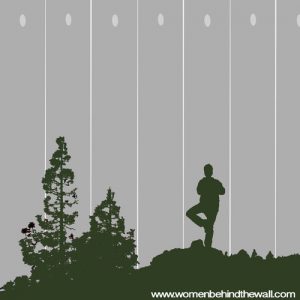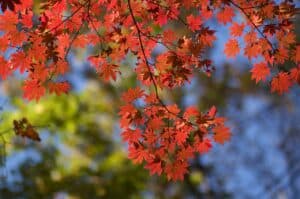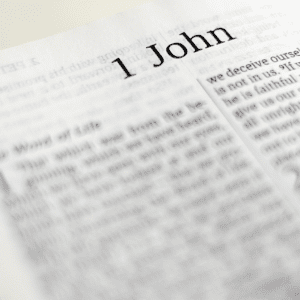 Episode 4: Finding Light in Darkness
Episode 4: Finding Light in Darkness
The Women Behind the Wall podcast highlights female voices from the Holy Land, and is hosted and produced solely by women who live and work in Jerusalem. The podcast seeks to amplify minority voices and perspectives, especially women’s experiences in the private sphere as it is affected by the public sphere. We hope you’ll join us here every Thursday for 10 weeks as we highlight each episode.
Listen to Episode 4 here
“We all have a sun inside, we all have a light.” The idea of an inner light is reflected in “Beit Ashams,” the appropriately named yoga studio and community center which translates to “House of the Sun.” In episode four, listeners meet co-owner and yoga teacher Eilda Zaghmout, a Palestinian Christian who believes that strengthening the mind-body connection is essential for developing resilience and she pours this belief into her work.
Eilda Zaghmout is a Palestinian Christian who believes that strengthening the mind-body connection is essential for developing resilience.
On this episode, Eilda discusses the shadow of the occupation and how that affects a person. “When you live under constant trauma, you are disconnected from your body, from your emotions, and also your thoughts.”
Growing up, Eilda’s family actually lived in Jordan during her childhood. Her family had become refugees in 1967 during the war. Her grandfather took the family to Amman, which meant losing their residency rights in the Holy Land. But in 1994 after the Oslo Accords, some Palestinians were able to come back as residents through family reunification. While returning to their roots in Beit Jala an area in the Bethlehem District was important and a dream of her father’s, Eilda speaks of the reality they came home to: “It was a shock as a family. Moving from full freedom [in Jordan] to experiencing occupation.”
She talks about her Christian background and what it was like growing up in a fully religious community. She says being raised a part of the Greek Orthodox church is a gift; there is a respect and love, and core values that she is happy she was exposed to as a child. She describes a strong connection to Christianity, and the pride around celebrations within their community.
Even as a deeply spiritual and religious person, Eilda doesn’t like to be identified solely in this way. She said it took a while to get out of her own identity boxes. “This box becomes like, you’re enclosing yourself in it. It limits you from approaching others.” She says shedding the labels isn’t about a superiority or eliminating others, it’s to see herself as human. One exception, though, is her title as mother. She feels it is the one label that connects her to other women and is universal. “Maybe the only thing I would identify with is a mother. And for me this is much different than any other labels. Because there’s so many similarities with so many women who are mothers. Even if they are not mothers, we have this by nature – for all the women we have this motherhood. Whether we have kids or not, we still know how to nurture and take care of others.”
But Eilda also recognizes in Palestinian and Arab culture, there is a belief that women should be self-sacrificial which can be damaging. She hopes that Beit Ashams and the practice of yoga brings empowerment to women for self-care, in order to be able to give to others. She brings this philosophy into her practice. “My invitation is to stand up and try one more time because that’s how life is. Imagine that every time we fall, we just like, allow ourselves to stay on the floor – It’s not going to work. We have to stand up again, whatever we really need, whatever we stand up for, just rise up again. Fall, but rise up again. And that’s how we develop, that’s how we grow.”
Beit Ashams is the first specialized yoga studio in Palestine with classes for children, pregnant women, the elderly, runners, mixed classes, and different styles of yoga are practiced. They do different trainings focused on trauma care and have worked with activists to help them recharge, not become burnt out, and to connect their bodies with their minds and spirit. Beit Ashams was born from a 2012 vision of creating a safe space for women, but when men also started to come, Eilda and her business partner decided to create a community center.“To create a space of hope in a situation where people can easily lose hope… Whatever we can do for the well-being and self-care of the people here in this land, that is what we’re offering.”
Father God, we are thankful for the embodiment of your spirit in Eilda and the work that she does with and for others at Beit Ashams. We pray for those affected by trauma and for the healing of their mind, bodies, and spirit. Further, we pray for the healing of the Holy Land. We ask for a connectedness and awareness of the damage the occupation has inflicted upon the body of Christ in Palestine, as well as our Jewish and Muslim brothers and sisters. Let us be more aware and present to the suffering of others, and to meditate on scripture’s call to be peacemakers.
ESA is grateful to our friends at Churches for Middle East Peace for reprint permissions.


